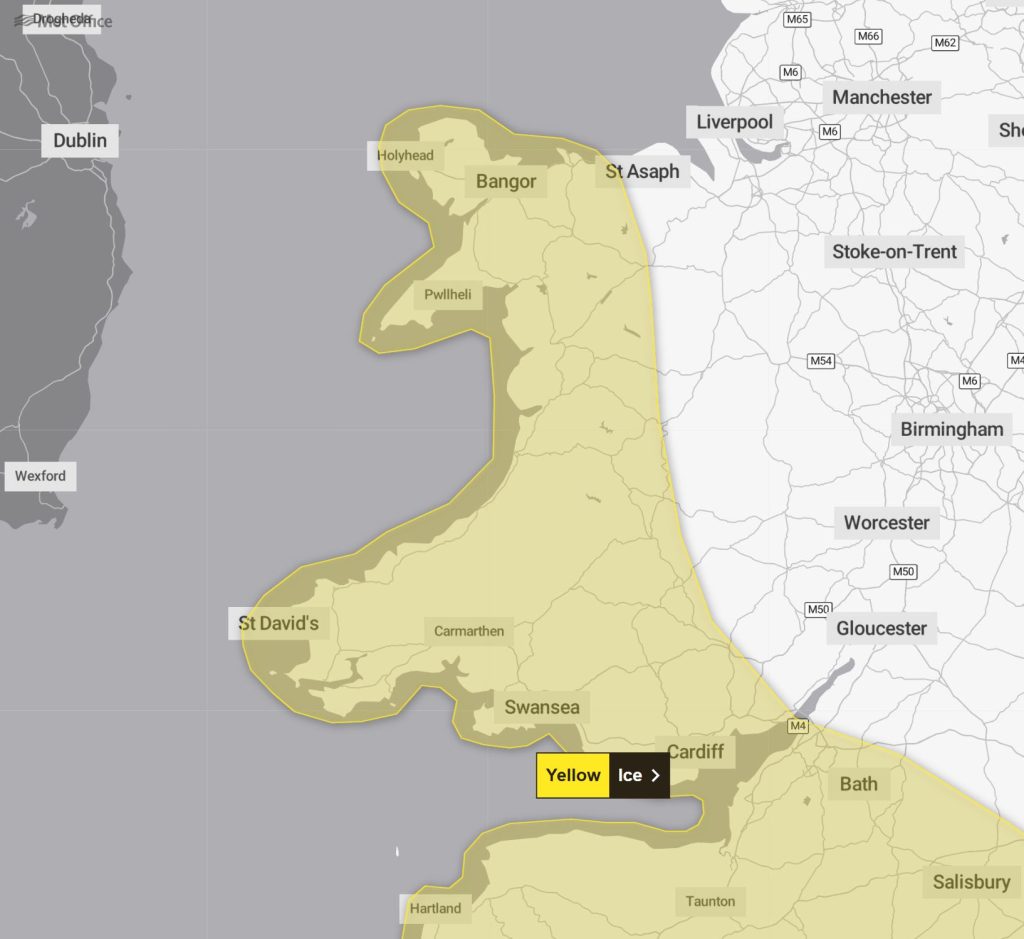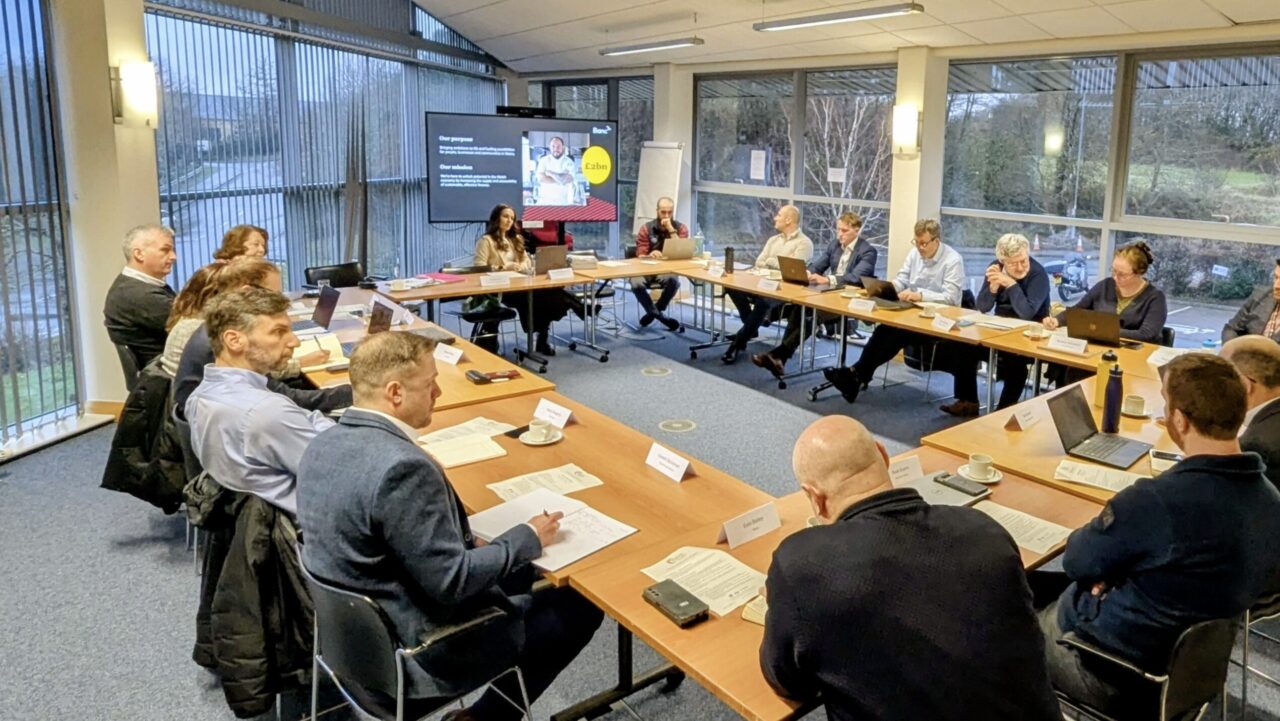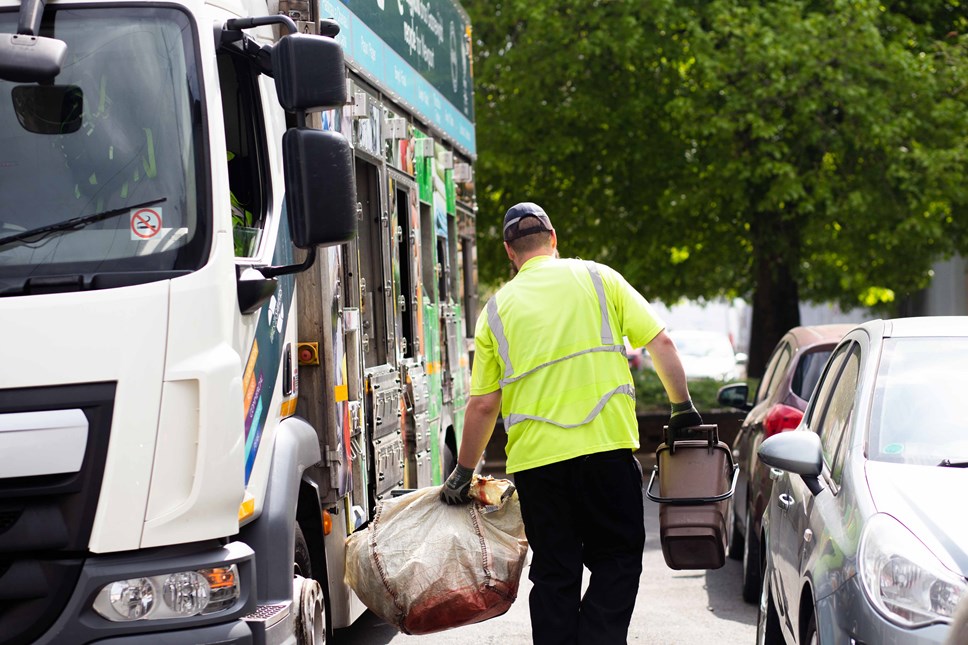Climate
Harness the Sun and reap the savings with a Solar Power system

Celtic Green Energy answers your most burning questions about Solar
Cross Hands based Celtic Green Energy are one of Wales leading renewable energy specialists who have been serving the whole of mid, south and west Wales for the last 10 years. With a small team of energy experts and installers, the company prides itself on experience, best value, best prices, high quality and aftercare service. As an early adopter, the company identified early on the huge benefits of solar power for carbon reduction and long term cost savings – last year’s energy crisis certainly highlighted the nations vulnerability to fuel security. With a growing anxiety of rising energy costs, Celtic Green Energy addressed the consumers’ confusion around solar and embarked on a summer roadshow attending regional shows, exhibitions and shopping centres. It was clearly evident that most consumers shared the same concerns, and their team of energy advisors were able to help shed some light on these issues. The most common issues are revealed here.
1. Why should I consider solar power?
The sun is a freely available natural resource that is used to energise Solar Photovoltaic panels. The panels are made up of a number of wafer thin silicon solar cells encased in a durable self cleaning weather resistant panel which in turn are linked to an inverter that generates electricity. Solar PV panel technology has been widely popularised in recent years with huge improvements in performance and cost reductions making them an affordable solution for everyone who uses electricity. If you are a high energy user such as a business, farmer or holiday home owner, a solar panel system will offer you significant reductions in your future energy costs and help sustain your business. We learn in the press of family bakers and butchers being forced out of business simply on their unsustainable rocketing electricity prices.
2. Is solar energy reliable?
Commercial solar panel systems are a relatively new phenomenon having been popularised only within the last 15 years. The solar PV panels absorb the sun’s rays during daylight including cloudy or overcast weather – if it’s daylight, they are working! Even after dark, there is a solution with Solar Batteries where excess generated electricity is stored and retrieved at night dispensing with the need for expensive National Grid power. With continually emerging technology and improving performance, Solar PV panels are guaranteed to last at least 25 years so represent excellent value for money. As there are no moving parts and performance degradation is miniscule, the solar panel system offers excellent reliability. The Solar Battery and inverters are usually guaranteed for 15 years with extended warranty programmes readily available.

3. Will it be a burden on my finances?
Purchasing a solar power system is an investment that does carry a significant upfront cost, however, this will be soon outweighed with the long term benefits and assured fuel security. As every home or business is unique, so is the design of a solar power system – the solar installer will tailor a scheme to best suit your individual circumstances including a site visit to identify the location parameters and discuss the customer’s needs. Most schemes will see the investment repaid within 4 years, some commercial schemes could be repaid in as little as 14 months, so you will no longer be subject to soaring energy prices and be reassured your investment was worthwhile. Depending on your individual circumstances, you may even be eligible for funding assistance with various prevailing Government schemes to install a solar power system.
4. How do I choose the right provider?
The million dollar question! The Solar Power industry is seeing a deluge in businesses offering installations, from the main utility providers to ‘have-a-go-Jo’s’ ready to make a quick buck. The Solar industry does have very strict regulatory guidelines and consumers are advised to check out MCS accreditation for their local suppliers. If their supplier does not offer MCS certification, they may find that their system may not be compliant with the National Grid and excludes connection and any warranty privileges. Consumers are also reminded that the cheapest solution is not always the best option, we are learning of rogue dealers ‘plug and run’ practices, leaving customers in the lurch with ineffective installations, no aftercare or warranty. Thankfully Celtic Green Energy has a longstanding provenance of quality workmanship and exemplary aftercare with the necessary credentials to provide the best possible solutions for their customers.
5. What about maintenance?
Solar Photovoltaic panels are relatively maintenance free as they have no moving parts and are self cleaning. Depending on certain locations however, some installations are advised to have annual maintenance checks for any signs of wear and tear such as extreme weather damage, moss growth, birds, detritus and traffic pollution. Given the high technology construction, the panels are relatively durable within normal conditions, but consumers are advised not attempt to maintain them themselves as this could cause unnecessary damage such as invasive pressure washers etc. Most reputable installers offer maintenance and service packages.
Sum up…
Next time you awake to a fresh morning cuppa and look out to a sunny day, remember that sunshine could be providing you with free electricity to power your kettle – as well as your washing machine, cooker, television, charging your electric car and lots, lots more! The possibilities for solar power are endless, so if you are concerned about your rising energy costs and want to do something about it, make your next step be a phone call to Celtic Green Energy who will be able to advise you on the best way forward. You can call their energy helpline 01269 500388 or learn more and visit their website at www.celticgreenenergy.co.uk
Here’s to brighter tomorrows and sunnier savings!
Climate
Ice warning issued as temperatures fall below freezing across Pembrokeshire

Cold snap expected to create hazardous roads and pavements overnight into Monday morning
PEMBROKESHESHIRE residents are being urged to take extra care after a yellow weather warning for ice was issued for the whole of Wales.
The alert, issued by the Met Office, covers the period from late Sunday night (Feb 1) until mid-morning on Monday (Feb 2), with temperatures expected to drop to around minus two degrees Celsius in some areas.
Forecasters say wet roads and surfaces left by earlier showers are likely to freeze quickly after dark, creating icy stretches on untreated roads, pavements and rural lanes across Pembrokeshire.

Travel disruption possible
The Met Office warns that icy patches may form widely, increasing the risk of slips and falls and making journeys slower and more hazardous, particularly during the Monday morning commute.
Untreated side roads, country routes and shaded areas are expected to be most affected, with black ice possible in places where frost is not easily visible.
Drivers are advised to allow extra time for journeys, slow down and keep a safe distance from other vehicles. Pedestrians are urged to wear suitable footwear and take care on steps, slopes and pavements.
Gritting teams are expected to treat main routes overnight, but officials warn that not every road can be covered.
Local outlook
Temperatures across the county are forecast to fall sharply after sunset on Sunday, with frost forming widely before dawn. Inland and higher ground areas are likely to see the coldest conditions.
Residents are also being encouraged to check on elderly or vulnerable neighbours and ensure homes are adequately heated during the cold spell.
Conditions are expected to improve later on Monday as temperatures rise above freezing, but further updates may be issued if the forecast changes.
Climate
Breaking down barriers between finance and industry in offshore renewables sector

EARLIER this week, Marine Energy Wales brought together senior representatives from national and devolved finance institutions with developers, ports and supply-chain companies operating across Wales’ offshore renewable energy sector for a dedicated finance roundtable in Pembroke Dock. Attendance was limited to premium MEW members to allow for frank, focused discussion.
The session was intentionally designed to be different.
Rather than relying on formal presentations or sales pitches, the roundtable created a facilitated, closed-door space for open dialogue. Finance organisations were able to explain clearly how they operate, what types of projects they can support, and where constraints still exist. Industry participants, in turn, set out the real-world challenges they are facing across tidal energy, floating offshore wind, port infrastructure and supply-chain development.
What emerged was more than information sharing—it was a clearer, shared understanding of how decisions are made on both sides.
From siloed conversations to shared problem-solving
A consistent theme from the discussion was that significant public and institutional finance is now available to support clean energy projects. However, navigating that landscape remains complex, particularly for early-stage developments, smaller supply-chain businesses and emerging technologies.
By bringing the right people into the room at the same time, the roundtable helped to:
- demystify how different finance bodies assess risk, scale and project readiness
- highlight where policy ambition, market signals and investment criteria are not yet aligned
- identify opportunities where better sequencing and coordination of funding could unlock progress
- establish direct relationships that will support follow-up conversations beyond the room
The discussion also surfaced where gaps remain. In particular, the need for clearer market signals and more tailored support for tidal stream and other early-stage marine technologies was repeatedly raised. These are challenges that are difficult to address in isolation, but far more productive to tackle collectively.
The value of convening
For Marine Energy Wales, the roundtable reinforced the importance of our role as a neutral convener for the sector.
Members consistently tell us that access to finance is one of the most significant barriers to progress—not only in terms of capital availability, but in understanding how to engage effectively with funders. At the same time, finance organisations are keen to deepen their understanding of project development timelines, technology risk and the scale of Welsh supply-chain ambition.
Creating space for those conversations is where real value is added.
This is not about Marine Energy Wales brokering individual deals. It is about building shared understanding, reducing friction, and helping to align finance, policy and industry around credible pathways to delivery.
What comes next
This roundtable was not a one-off.
Marine Energy Wales is committed to continuing this work, developing structured and trusted forums where finance, industry and government can engage early, openly and constructively. As Wales moves from ambition to delivery in offshore wind and tidal energy, these relationships and conversations will be critical to ensuring projects are investable, deliverable and anchored in Welsh economic benefit.
We will continue to work with our members and partners to identify priority issues, convene the right voices, and help turn opportunity into tangible outcomes on the ground.
Climate
Wales takes another giant leap towards becoming a zero-waste nation

THE LATEST figures are in, and they’re impressive – Wales has pushed its recycling rate up to 68.4% in 2024-25, climbing from 66.6% the previous year. It’s a remarkable turnaround for a country that was recycling just 5% of its waste before devolution.
The boost comes as Wales’ new workplace recycling rules begin to show real results. Businesses, public sector organisations and third sector workplaces across the country are now required to separate key recyclable materials, and it’s making a measurable difference.
Local authorities collected an additional 8,187 tonnes of recyclable material from workplaces this year – that’s a 42% jump compared to last year. Meanwhile, residual waste from workplaces has dropped by 15.8%, meaning thousands of tonnes of valuable materials are being fed back into the economy rather than burned or buried.
The landfill figures tell their own story – just 0.7% of Wales’ waste ended up in landfill in 2024-25, compared to 95% before devolution.
Deputy First Minister Huw Irranca-Davies, who has responsibility for climate change, said: “We continue to build on Wales’ already world class recycling. This shows the huge shift in attitudes over the last few decades; recycling is now a part of who we are as a nation.”
He added: “I’m proud of every person in Wales who has played their part in getting us to where we are today – in our homes and now in our workplaces too. Thank you for joining this collective effort.”
Wales currently sits second in the world for recycling – leading the UK and trailing only Austria in global rankings published by Eunomia Research and Consulting and Reloop in 2024. More than half of Welsh councils hit the 70% recycling target, and over 90% improved their rates year-on-year.
The Deputy First Minister said: “Our recycling track record is something to be proud of as we continue taking action to tackle the climate and nature emergency and grow the green economy. But let’s not be complacent. Being number one in the world for recycling is within our grasp if we keep up the momentum.”
-

 Health3 days ago
Health3 days agoConsultation reveals lack of public trust in health board
-

 News5 days ago
News5 days agoCaldey still unsafe, survivors warn — despite Abbey’s reform claims
-

 Community4 days ago
Community4 days agoPembrokeshire students speak at national Holocaust Memorial Day event
-

 News6 days ago
News6 days agoWales warned against single police force as Lib Dems cite Scotland ‘lesson’
-

 Crime6 days ago
Crime6 days agoMilford Haven man appears in court charged with burglary and GBH
-

 Business6 days ago
Business6 days agoDuke of Edinburgh Inn in Newgale on the market for £325,000
-

 Local Government7 days ago
Local Government7 days agoPembrokeshire council house rents to increase this year
-

 Local Government6 days ago
Local Government6 days agoTribunal over former Neyland councillor’s conduct adjourned























